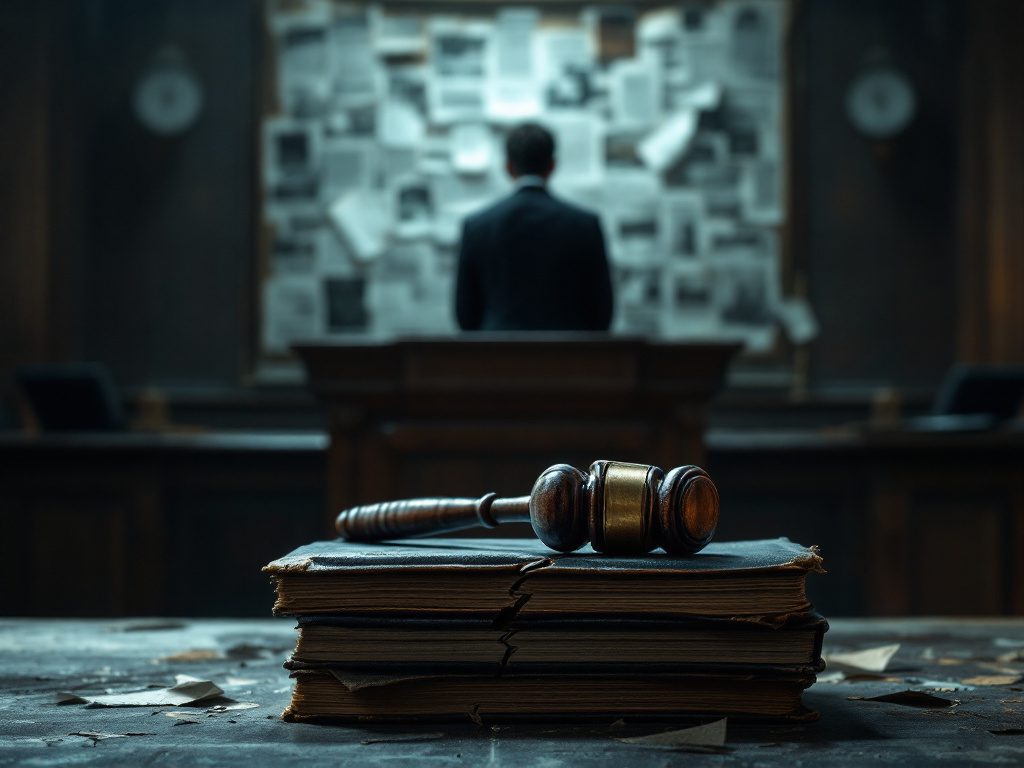The Cracks Show: Trump’s ABC Interview and Behar’s Empathy
Imagine the leader of the free world, facing direct questions on national television, not only resorting to personal attacks but visibly struggling to answer the most basic queries. This was the scenario that played out during President Donald Trump’s heated interview with ABC News’ Terry Moran—a performance so jarring that Joy Behar of The View found herself feeling ‘sorry’ for a president she’s long criticized. Her words reverberated across progressive circles: “He’s over his head.”
What led to this rare moment of empathy? Behar and her cohosts were reacting to Trump’s increasingly desperate deflections, particularly when pressed on the case of Kilmar Abrego Garcia—a legal U.S. resident deported to El Salvador under dubious gang allegations. Moran attempted to clarify a key point: the Trump administration’s use of a photoshopped image depicting Garcia with an MS-13 tattoo. Instead of responding substantively or acknowledging the admitted error, Trump attacked Moran’s credibility. “I picked you because—frankly I never heard of you, but that’s OK. I picked you, but you’re not being very nice,” Trump retorted, sidestepping yet again.
Behar’s reaction on The View was telling. “I’m really starting to feel sorry for him,” she confessed, breaking from her usual biting candor. This sudden twinge of sympathy didn’t stem from approval—as Behar made clear—but from witnessing a flailing leader, outmatched by the moment and incapable of answering ‘simple questions’ even on topics he touts as his forte, like immigration policy.
One might wonder: What does it say when even sharp-tongued critics experience secondhand embarrassment for the president of the United States?
Rule of Law on Trial: The Constitutional Quagmire Behind the Interview
Beneath Behar’s empathy lay a deeper civic concern, echoed most fiercely by cohost Sunny Hostin. The core issue was not just a poorly handled interview, but a direct challenge to the foundations of American democracy. At the heart of the controversy: Trumps’ refusal to comply with a Supreme Court order to return Garcia—a man wrongfully deported, with no known gang-related convictions, despite the administration’s public smears.
This rebuke of the judiciary represents more than executive bravado—it is a crisis of constitutional proportions. Hostin, a former federal prosecutor, did not mince words: “This is a constitutional crisis,” she warned viewers. Legal precedent in the U.S. has always depended on respect for the judiciary—especially the Supreme Court. Trump’s brazen defiance represents a break with tradition that once would have been unthinkable, even among Republican administrations that often bristle at high court decisions.
Harvard constitutional scholar Laurence Tribe weighed in on similar executive defiance, noting in The Atlantic that “the stability of our system rests on voluntary compliance with judicial authority. When the president signals that Supreme Court orders are optional, it shreds the fabric of our constitutional democracy.” This moment, he suggests, is not just about one man or one migrant’s fate—it’s a test for the republic itself. If presidents decide their political interests can supersede lawful orders, then what remains of separation of powers?
“I’m really starting to feel sorry for him… It’s clear he’s over his head and can’t even answer simple questions. That’s not just a bad interview—that’s a problem for democracy.” — Joy Behar, The View
Beyond that, the case also exposes how misinformation—like the phony MS-13 tattoo—can be weaponized not just to justify harsh policy, but to mislead the public and undermine judicial process. The administration’s eagerness to circulate a doctored image, only to later admit it was fake, erodes trust at a time when civic institutions can least afford doubt.
Public Sentiment Shifts: Cracks in the Conservative Immigration Narrative
Conservative defenders of Trump have long championed his tough immigration stance as the one issue where he enjoys popular support. Yet, the latest Washington Post-ABC News-Ipsos poll tells a different story: Trump’s approval rating on immigration has fallen in recent weeks, despite (or perhaps because of) these headline-grabbing moves. The more Americans see of these tactics—the casual demonization, the disregard for legal restraint—the less they buy into the strongman myth. Instead, voters are seeing what happens when an administration governs by impulse and image rather than by facts or law.
A closer look reveals this is not just a slip in the polls; it’s a fundamental shift in public trust. According to Pew Research, Americans of all political backgrounds overwhelmingly support an independent judiciary and want leaders to respect court rulings—even those they disagree with. The administration’s disregard for these norms is sparking anxiety, not just among progressives, but among moderate conservatives uneasy with the erosion of checks and balances.
History offers cautionary signals. Richard Nixon’s flagrant disdain for judicial oversight during Watergate resulted not just in political downfall but a decades-long reckoning for the Republican Party. Unchecked executive power, trusted blindly in the hands of one man, has never boded well for the republic. In that context, what emerges from Behar’s unexpected sympathy is actually profound concern. If a leader seems more aggrieved by tough questions than focused on the hard work of governance, the country itself is in trouble.
Hostin’s warning is clear: “This is about the rule of law. Every president, regardless of party, should answer to the courts.” Comedians, legal analysts, and ordinary citizens alike are watching. No nation’s democracy survives the normalization of court defiance—especially when propped up by distortion and distraction.

